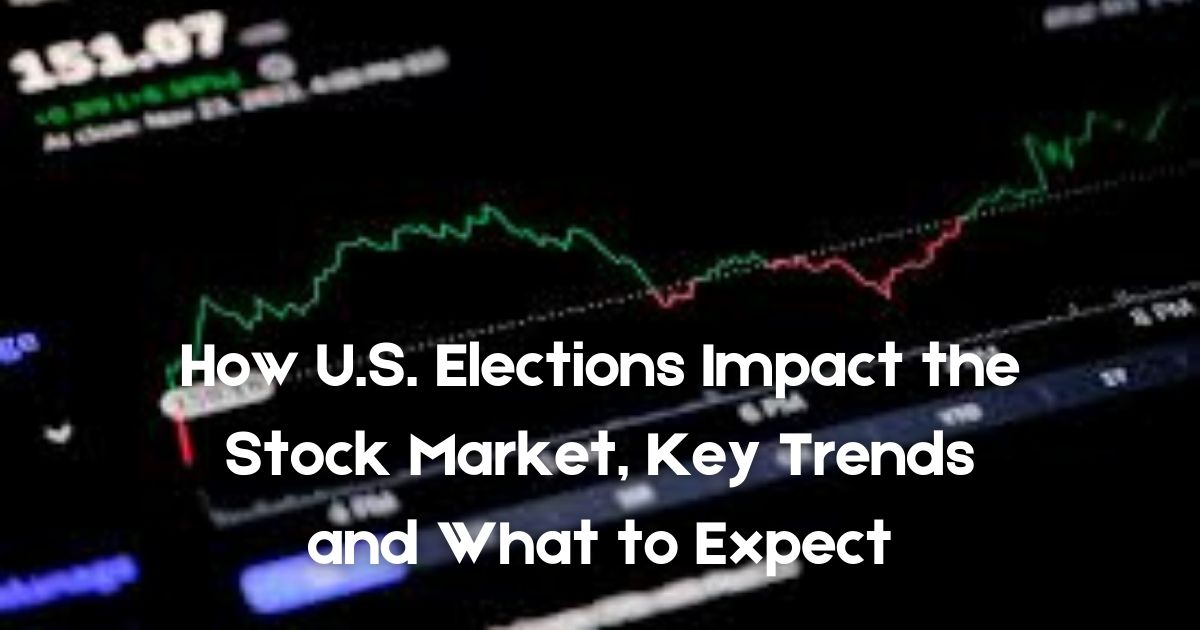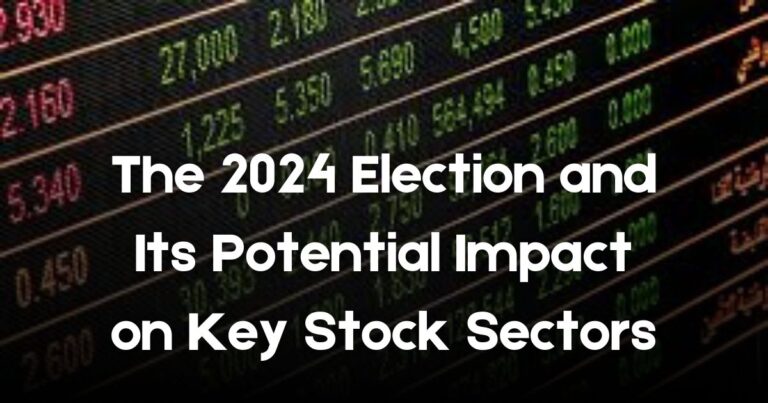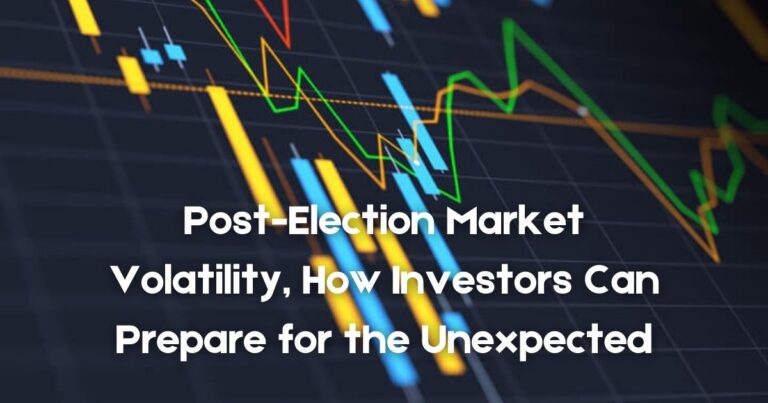
The U.S. stock market is a place where people buy and sell shares in companies, and it can change a lot in response to various events. One of the big events that can make the stock market go up or down is the U.S. presidential election. This is because elections bring uncertainty about what the future policies and laws will look like, and these changes can affect the economy and businesses.
In this article, we’ll explore why U.S. elections impact the stock market, look at some key trends, and discuss what investors might expect in an election year.
Why Do U.S. Elections Affect the Stock Market?
Elections create uncertainty, and the stock market usually does not like uncertainty. Investors want to know what will happen next so they can make decisions about their investments. But during an election, people aren’t sure who will win or what the winning candidate will do once in office. This can make the stock market react more sharply to news and rumors.
Here are a few reasons why elections impact the stock market:
- Policies of the Candidates: Each candidate has different plans for taxes, regulations, healthcare, and the environment. These policies can help or hurt certain industries. For example, if a candidate wants to increase spending on renewable energy, companies in that sector might do well. But if a candidate wants to put more regulations on big tech companies, those stocks might go down.
- Changes in Taxes: Taxes play a big role in the economy. When candidates talk about raising or lowering taxes, investors pay attention. Higher taxes on businesses can reduce their profits, which might make their stocks less attractive to investors. Lower taxes can increase profits, which can make those stocks more attractive.
- Government Spending: The government spends money on different projects, like building roads, supporting the military, or providing healthcare. Depending on who wins, some sectors of the economy might benefit more than others. For example, if a candidate promises to increase defense spending, military contractors might see their stocks go up.
- Regulation Changes: Different parties have different views on regulation. Some believe in less regulation, which could be good for businesses since they have fewer restrictions. Others support stricter regulations to protect the environment or consumers. This can impact industries like energy, tech, and finance.
- Market Sentiment: Elections also affect how people feel about the economy. If investors think that a candidate will be good for business, they might buy more stocks. If they worry that a candidate could harm the economy, they might sell stocks. This sentiment can lead to swings in the market.
Key Trends: How the Stock Market Has Reacted in Past Elections
By looking at how the stock market has reacted in previous elections, we can see some interesting trends. These trends don’t predict exactly what will happen, but they help us understand how markets might behave.
1. Election Years Often Bring More Volatility
Historically, election years bring more ups and downs in the stock market. This is because investors are reacting to news about the candidates, their policies, and polling data. As the election day gets closer, the market tends to be more sensitive to any shifts in public opinion or unexpected news.
For example, during the 2016 election, the stock market was highly volatile. Many investors were uncertain about what would happen if either candidate won, especially with policies that could have big effects on the economy.
2. Markets Tend to React Favorably After Election Results Are Final
After an election, the market usually calms down. This is because the uncertainty about who will lead the country is over. Once investors know who is in charge, they can better plan for the future. If the new president’s policies are seen as business-friendly, the market may even rally, which means it goes up quickly.
For example, in 2020, after the election results became clear, the stock market went up. Investors were happy to have a clear answer on the presidency and looked forward to more government support for the economy.
3. Different Market Trends Based on Political Party
There’s a general belief that markets react differently depending on whether a Republican or Democrat wins the presidency. Some people think the stock market performs better under Republican presidents, who are often seen as more business-friendly. However, studies show that the market has actually done well under both parties.
- Under Republican Presidents: There tends to be more support for lower taxes and less regulation. This can boost stock prices in sectors like finance, energy, and manufacturing.
- Under Democratic Presidents: Democrats may focus more on healthcare, renewable energy, and consumer protection. Stocks in these sectors may benefit from policies like increased healthcare spending or support for clean energy.
While these patterns exist, they are not set in stone. Many factors affect the market, and party affiliation alone does not guarantee a specific outcome.
4. Midterm Elections Can Also Impact the Market
It’s not just the presidential election that affects the stock market. Midterm elections, which happen every four years in between presidential elections, also have an impact. These elections decide who controls Congress, which makes laws and decisions that affect the economy.
The stock market has a historical trend of doing well after the midterm elections. This might be because midterms give investors a clearer picture of the government’s makeup and make future policies more predictable.
What to Expect in Election Years
So, what might investors expect in an election year? Here are some general tips and trends that often play out:
1. Be Prepared for More Market Swings
With all the news coverage and debates, the stock market may go up and down more often in an election year. Investors should expect more volatility, especially as candidates make big announcements or propose new policies. It can be a good idea to stay patient and avoid making impulsive decisions based on daily news.
2. Certain Sectors Might Do Better Depending on the Candidates
If you follow the candidates’ policy proposals, you might notice that certain sectors get more attention. For instance:
- Healthcare Stocks: If a candidate is talking about healthcare reform, stocks in this sector might move.
- Energy Stocks: Candidates often have different views on oil, gas, and renewable energy, which can impact these stocks.
- Technology Stocks: Tech companies are often affected by policies around data privacy, regulations, and taxes.
3. Look for Long-Term Opportunities
Even though the market may be more volatile during an election year, many financial experts suggest looking for long-term investment opportunities. Rather than reacting to every piece of election news, focus on companies with solid fundamentals that are likely to do well over time, regardless of who wins.
4. Diversify Your Investments
One way to protect yourself from election-related volatility is to diversify your investments. This means spreading your money across different types of assets, like stocks, bonds, and real estate. Diversification can help balance your portfolio, so if one sector goes down due to election news, other parts of your portfolio might do well.
The Bottom Line: What Can Investors Expect?
U.S. elections can bring a lot of changes to the stock market, and 2024 will likely be no different. During an election, the market may react strongly to news, policy proposals, and polling numbers. Investors may see more volatility and might need to exercise patience during this period.
By understanding the trends from past elections, focusing on long-term goals, and keeping a diversified portfolio, investors can navigate election years with confidence. While elections are important, they are just one factor among many that affect the stock market.






